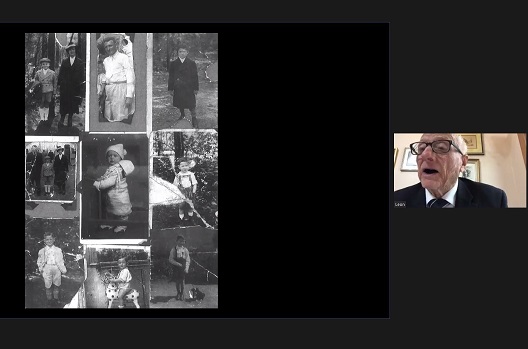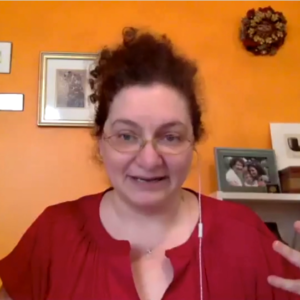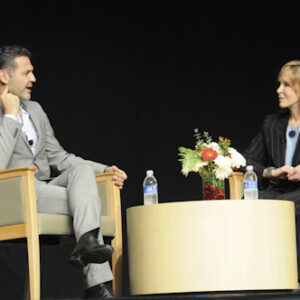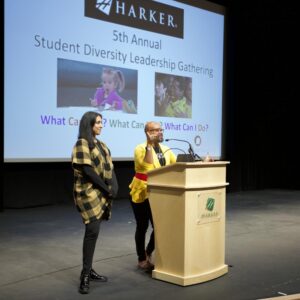Last week, the Student Diversity Coalition and the Jewish Family and Children’s Services Holocaust Center hosted a special appearance by Leon, a Holocaust survivor who related his incredible story to the Harker community. Included in his presentation were drawings he had made from his the vivid memories of his experience.
Born in the then-Romanian city of Czernowitz in 1931, Leon was interested in soccer as a child, recalling that he had played the sport since he was first able to walk. In the 1930s, Romania had a policy of tolerance toward Jewish people, which changed when Hitler rose to power. Michael I, Romania’s last king, followed his mother in opposing the Hitler-allied Romanian prime minister’s persecution of Romanian Jews, for which Leon said the king’s entire family was threatened.
Leon was eight years old when Hitler began expanding his control across Europe. He remembered refugees crossing into Romania, for whom his mother made “big, big pots of soup.” In December 1941, all Romanian Jews were ordered to be transported to ghettos. “There was no community outcry like today,” he said. “There was no community protest like today. We left in silence.”
He was separated from his parents and placed into a train car with the other children for a long trek to where they would be held. The very limited water supply had to be rationed and watched closely. “People were ready to give up on life,” Leon recalled. “We lost all shame and self-esteem.”
Upon departing the train, Leon’s family and the other Romanian families were marched to concentration camps. Leon’s mother bribed one of the guards watching over the procession, who looked the other way while the family escaped. They spent three weeks begging for food at a nearby farmers market, and eventually were sent to a ghetto to work and live in a one-room hut. Food was scarce and water was collected by melting snow in a small pot.
At one point, both Leon and his mother contracted typhus, and the staff at the nearby hospital believed he had only hours left to live. He was placed in a crib in the hospital’s morgue, where he lay unconscious for five days. When he woke up, he spotted his father on the way to visit his mother and called out to him. He carried Leon home and nursed him back to health, and his mother eventually came home as well.
“In my 90 years, the five days I spent in the morgue was the only time I lost control of my life,” he said.
The ghetto was eventually liberated, and Leon and his family returned to Czernowitz. Upon returning, Leon went over to a garbage can where he had stashed some family photos as they were being moved into the ghettos. All the photos remained intact.
Later in life, Leon immigrated to the United States and joined the U.S. Army, serving in the Korean War. He also met his wife, Eva, to whom he has been married for 60 years.
He advised the students in the assembly to treasure their education (“I was robbed of my education, and life was very hard”) and to reject hate (“It just begets more hate, nothing else”).











